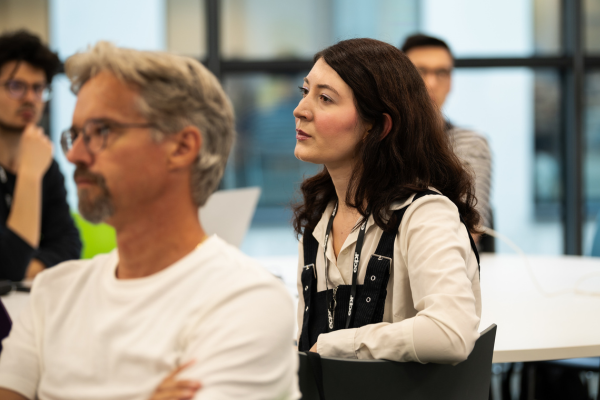
Rhodes, Greece
Summer School 2025 “Small Acts. Big Impact”
When:
18 September - 16 October 2025
Credits:
0 EC
Read more
Social Sciences
When:
24 March - 28 March 2025
School:
Institution:
European Consortium for Political Research (ECPR)
City:
Country:
Language:
English
Credits:
4 EC
Fee:
492 (member fee) 985 (non-member fee) GBP

Learn key aspects of Comparative Historical Analysis, including process tracing, path dependency, case selection, periodisation, and project design.
Need to Know
No particular previous knowledge is required, although students should come to the course having already read the course material and ready to fully engage with it. It will be assumed that students who have registered for the course have an interest in historical processes and theory building, both of which are central to the logic of Comparative Historical Analysis.
Learning commitment
As a participant in this course, you will engage in a variety of learning activities designed to deepen your understanding and mastery of the subject matter. While the cornerstone of your learning experience will be the daily live teaching sessions, which total three hours each day across the five days of the course, your learning commitment extends beyond these sessions.
Upon payment and registration for the course, you will gain access to our Learning Management System (LMS) approximately two weeks before the course start date. Here, you will have access to course materials such as pre-course readings. The time commitment required to familiarise yourself with the content and complete any pre-course tasks is estimated to be approximately 20 hours per week leading up to the start date.
During the course week, you are expected to dedicate approximately two-three hours per day to prepare and work on assignments.
Each course offers the opportunity to be awarded three ECTS credits. Should you wish to earn a 4th credit, you will need to complete a post-course assignment, which will involve approximately 25 hours of work.
This comprehensive approach ensures that you not only attend the live sessions but also engage deeply with the course material, participate actively, and complete assessments to solidify your learning.
Key topics covered
Monday: Introduction to Comparative Historical Analysis: Origins, logics, and exemplars.
Tuesday: Key aspects of Comparative Historical analysis: Process tracing, path dependency, and theory building.
Wednesday: The comparative historical research process: A practical guide.
Thursday: First book seminar.
Friday: Second book seminar.
How the course will work online
At the risk of sounding cliché (or, even worse, flaky), Comparative Historical Analysis is in many ways more than a method – it is an approach to understanding and analysing the social world. Furthermore, it is a craft. Unlike many other methods, there is thus no set of skills and techniques that, once mastered, will allow a researcher to do comparative historical analysis. Rather, each practitioner of the method must learn from the great “exemplars” that constitute the method’s canon.
Consequently, the course will combine interactive lectures that emphasise theoretical and practical components of the method with book seminars that dissect key contributions in the tradition. These will be delivered through Zoom. The instructor will also conduct live Q&A sessions and offer designated office hours for one-to-one consultations.
Daniel Ritter is an Associate Professor of Sociology at Stockholm University, specialising in revolutions and social movements.
This course will introduce you to Comparative Historical Analysis (CHA) through a combination of lectures and discussions and is designed for advanced masters level students and above.
By the end of this course, you will have a firm grip on what Comparative Historical Analysis is, how one goes about “doing” comparative history, and detailed knowledge of several key works in the tradition.
Upon completing the course, you will be able to design a comparative historical study in terms of posing relevant research questions or puzzles, identifying suitable sources of evidence, and weaving history and theory together into coherent and plausible explanations.
If you're interested in this course, registration opens on 01/10/24 and you can register here: https://ecpr.eu/Events/Event/PanelDetails/15740
Fee
492 (member fee) 985 (non-member fee) GBP, ECPR member - check whether your institution is a member here: https://ecpr.eu/Membership/CurrentMembers
Fee
985 GBP, ECPR non-member
When:
24 March - 28 March 2025
School:
Institution:
European Consortium for Political Research (ECPR)
Language:
English
Credits:
4 EC

Rhodes, Greece
When:
18 September - 16 October 2025
Credits:
0 EC
Read more

Thessaloniki, Greece
When:
26 August - 29 August 2025
Credits:
4 EC
Read more

Cologne, Germany
When:
28 July - 01 August 2025
Credits:
4 EC
Read more